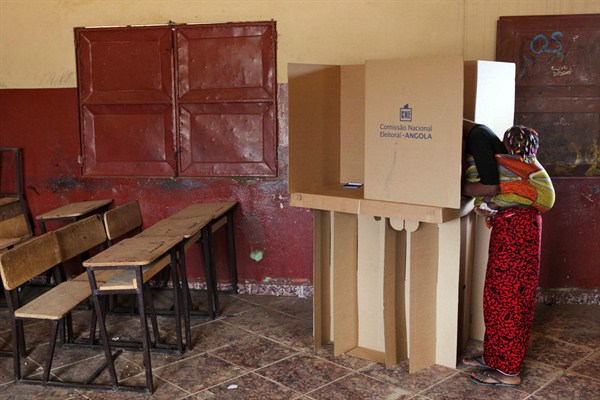With Jose Eduardo dos Santos stepping down after 38 years in power, there is little expectation in Angola of fair and free elections later this month. The ruling party headed by dos Santos has taken several steps to ensure its grip on power, stacking the deck against opposition parties and creating an election environment with little oversight or transparency. In an email interview, Dr. Sylvia Croese, a research fellow at the African Centre for Cities and the Department of Sociology at the University of Cape Town, describes the landscape in the runup to the elections, the pessimistic mood of civil society, and the factors that could compromise the outcome.
WPR: What are the reasons for the EU opting not to send an observer mission, how are preparations for the elections going generally, and to what extent has the selection of the territorial administration minister as the ruling party’s vice presidential candidate undermined confidence in the vote?
Sylvia Croese: Electoral observer missions depend on the invitation of the host country. Angola’s official invitation to the European Union was reportedly only sent out in late June. According to the Portuguese Member of the European Parliament (MEP) Ana Gomes, this did not give the EU sufficient time to prepare a mission for the approximately 200-delegates needed. Additionally, it has been reported that the Angolan government was not prepared to give delegates of the mission full and independent access. Instead, the EU will be sending a specialist mission consisting of four members, as it did during the 2012 elections.

